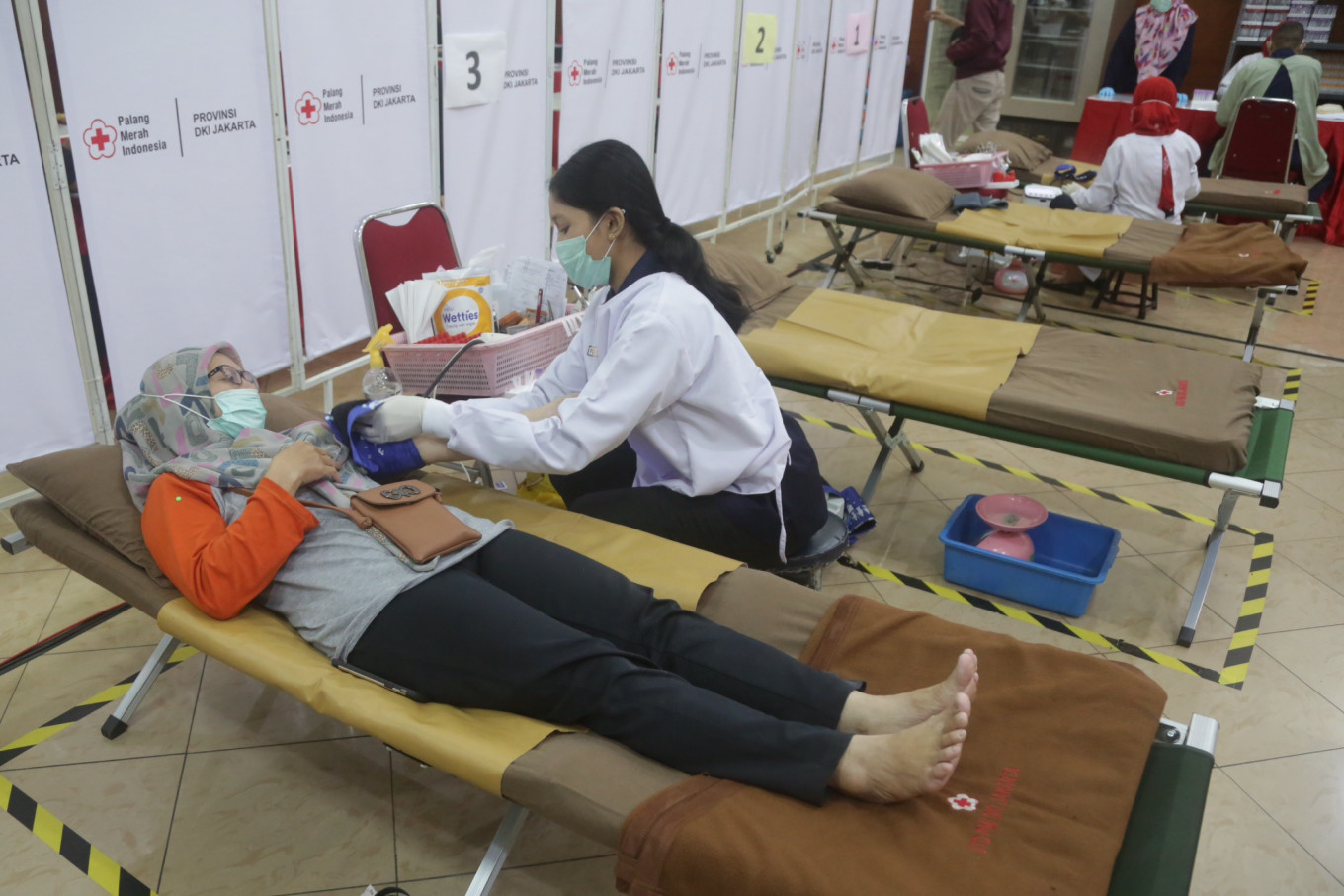Popular Reads
Top Results
Can't find what you're looking for?
View all search resultsPopular Reads
Top Results
Can't find what you're looking for?
View all search resultsJakarta’s blood supply is running dry
The Jakarta Red Cross has received between 100 and 200 bags of donated blood a day during the COVID-19 pandemic, a fraction of the pre-pandemic average of 1,000 bags a day.
Change text size
Gift Premium Articles
to Anyone
T
he Jakarta Red Cross has only about 20 percent of its usual stock of blood because of a decline in blood donations during the COVID-19 pandemic.
Jakarta Deputy Governor Riza Patria said the Red Cross was collecting between 100 and 200 bags of donated blood a day, a fraction of the pre-pandemic average of 1,000 bags a day.
Compounding the scarcity, the demand for blood has been higher during the outbreak. Hospitals in South Jakarta alone have been requiring 1,400 to 1,500 bags of blood daily.
“We urge all residents to actively participate as blood donors for the Red Cross,” Riza said on Friday.
He also asked members of youth organizations and Muslim congregations to routinely donate their blood.
Read also: Blood shortage common in Ramadan, but COVID-19 makes matters worse: PMI
The COVID-19 pandemic has deterred potential blood donors. The Indonesian Red Cross (PMI) said people, institutions and communities had canceled appointments for blood donations because of fears of contagion.
Many hospitals have suspended scheduled, elective and non-emergency procedures, which often require blood transfusions, because of the shortage.
But the demand for blood remains high, particularly for people with thalassemia and hemophilia, who require regular transfusions, as well as for some mothers giving birth.
Both the United States Food and Drug Administration (FDA) and the World Health Organization (WHO) say that the risk of transmission of COVID-19 through the transfusion of blood and components is likely minimal, as the virus chiefly targets the respiratory system. (sau/mfp)










